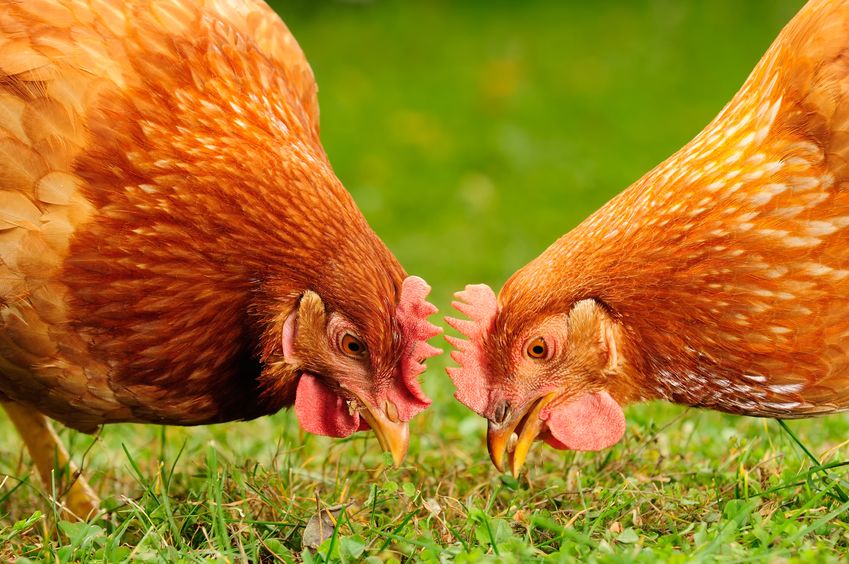
The free range egg industry has showed its disappointment with the Government's reluctance to change the way in which it deals with bird flu outbreaks in backyard flocks.
Six of the 13 H5N8 outbreaks in the United Kingdom last winter were in backyard flocks. Yet, although only 150 birds in all were involved, they caused significant losses for commercial producers caught up in restriction zones imposed as a result of the outbreaks.
The poultry sector has been pressing the Government to agree to reduce restriction areas when just a small numbers of birds are involved in an outbreak and so reduce the impact on poultry businesses.
At the Egg and Poultry Industry Conference (EPIC) in Wales chief executive of the British Free Range Egg Producers Association (BFREPA) Robert Gooch asked chief vet Nigel Gibbens whether he was prepared to change the Government's approach.
Mr Gooch said that the Dutch authorities operated a more sympathetic approach that reduced the effect on industry.
Nigel Gibbens said that he was supportive of such a change but did not think the UK authorities could introduce it at the moment. "I personally would like to see it change. You can't argue that it presents the same level of risk."
However, he said that all four administrations in the UK would find it hard to step out of line with the way that European Union law was currently interpreted in this county.
Mr Gooch expressed disappointment at the chief vet's response. "I am disappointed that the Government is not adopting the interpretation of the regulations used by the Dutch.
"My understanding is that in the Netherlands bird flu restrictions are treated differently when just a few birds are involved. That doesn't have the same impact on commercial flocks. It is the same EU law. Why can't our Government use the same interpretation as the Dutch?"
"We had six outbreaks in backyard flocks last year and they all had an effect on commercial producers. We would like to see Defra taking a more sympathetic interpretation," said Mr Gooch.
'Disproportionate'
The chairman of the Poultry Health and Welfare Group (PHWG), Duncan Priestner, who is also chairman of the NFU Poultry Board, has previously written to Nigel Gibbens on behalf of the PHWG asking for a change.
“We feel that putting in place movement restrictions around a backyard infected premise is disproportionate to the risk posed and only serves to penalise the commercial sector," he said in the letter.
“We feel that a different approach to zones is necessary to help movement and to avoid trade impact, without compromising the ability to stamp out the disease,” he said in the letter.
“The poultry industry cannot sustain this prolonged loss of trade and we fear for those companies whose income depends heavily on exports outside the EU. The impact the loss of that market has on the whole supply chain cannot be underestimated."
During the EPIC event Gary Ford, chief poultry adviser with the NFU said the industry was trying to get the message across to backyard keepers about the threat to poultry from AI.
"We are all aware of backyard flocks and the challenge they pose - the disproportionate impact they have on the poultry sector. We are working in partnership with Defra to get the message out to backyard flock keepers."
Backyard licence
Backyard flocks have become a growing concern amongst commercial egg producers. Questions about backyard keepers were repeatedly raised during EPIC. One delegate suggested to Nigel Gibbens that it might be time to require backyard keepers to be licensed.
"One of the problems we had last year was reaching backyard keepers in terms of messaging during the avian influenza outbreak around housing. I am just wondering whether we are approaching a time when we should consider licensing of some sort for animal keeping? We then know where keepers are and can reach them and, if necessary, and they don't comply with the legislation, we can prosecute."
The chief vet said he agreed with a licensing system. "This is not Government policy; this is my view. Yes. People who keep farm livestock, and there is a body of legislation that has nationwide impact, do have responsibilities immediately they make that purchase.
"It's not clear to me that that purchase is made with their eyes open and some sort of requirement for understanding what they are entering into, I think, would be valuable, including backyard flocks, although that would probably be the most sensitive one to deliver because of our tradition of one or two chickens that we have had for such a long time. But I think your proposition is sound. But that's the CVO's view; it's not Government policy."
Risk based
The Poultry Health and Welfare Group is calling for a new risk-based response framework to be put in place to deal with disease in backyard flocks and for the Great Britain Poultry Register threshold to be reviewed so that anything under that threshold should not be subject to the usual AI restrictions.
Many people in the industry have expressed concerns about the impact of backyard flocks on the commercial poultry sector.
A housing order was enforced across the UK and other parts of Europe during the winter's AI outbreaks to try to contain the spread of the virus, but some farmers expressed frustration at what they saw as some keepers of backyard poultry failing to house their birds.
Even as the housing orders were being lifted across the UK, cases of bird flu continued to arise in small flocks during May and June. On May 4 Defra confirmed H5N8 in a small flock of chickens on a farm near Thornton in Lancashire.
On May 6 AI was found in a flock of nine birds in the same region. And on June 3 H5N8 was confirmed in a small flock of chickens and geese at a premises near Diss, South Norfolk. Just 35 birds were involved.
